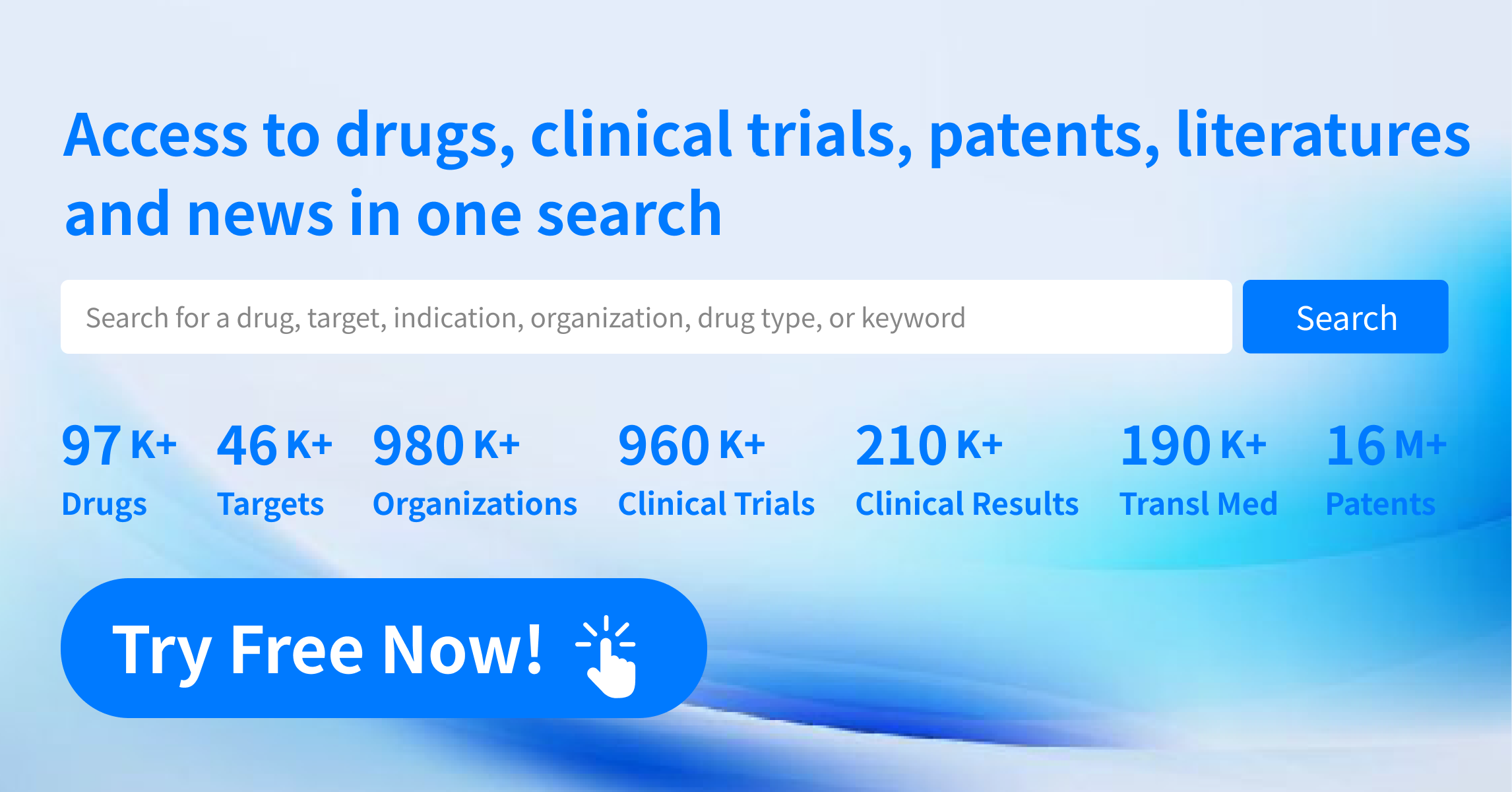Nurix Releases Promising Phase 1a/1b Clinical Trial Results for BTK Degrader NX-5948
Recently, Nurix Therapeutics ("Nurix") unveiled promising data from its Phase 1a/1b clinical trial of NX-5948 at the 12th International Workshop on Waldenstrom's Macroglobulinemia (IWWM-12). NX-5948 is a Bruton tyrosine kinase (BTK) degrader currently under development for treating multiple conditions, including relapsed/refractory Waldenstrom's macroglobulinemia (WM).
Latest Study Data
As of April 17, 2024, in the Phase 1a dose-escalation study, patients received NX-5948 treatments ranging from 50 mg to 600 mg once daily. NX-5948 demonstrated a tolerable safety profile in WM patients consistent with its overall safety profile. As of October 10, 2024, among 9 evaluable WM patients from the Phase 1a and 1b trials, all of whom had previously undergone BTK inhibitor (BTKi) treatment and chemo/chemoimmunotherapy, eight patients (61.5%) had MYD88 mutations, and two patients (15.4%) had CXCR4 mutations. The results showed that
·7 patients (77.8%) achieved an objective response, and 2 patients maintained stable disease (22.2%).
·All 7 responding patients experienced a reaction at their initial 8-week assessment, with 5 patients continuing treatment and 2 patients having been on therapy for over a year.
·Responses were observed regardless of baseline MYD88 and CXCR4 mutation status.
·Efficacy, as measured by a reduction in serum IgM levels, deepened over time with NX-5948.
About NX-5948
NX-5948 is an orally bioavailable, brain-penetrant, small molecule degrader of BTK (Bruton's tyrosine kinase). This drug demonstrates strong potency against tumor cell lines that have developed resistance to current BTK inhibitor therapies. In January 2024, the FDA granted NX-5948 Fast Track designation for the treatment of adult patients with relapsed or refractory chronic lymphocytic leukemia or small lymphocytic lymphoma (r/r CLL/SLL). These patients must have previously undergone at least two therapies, including a BTK inhibitor and a B-cell lymphoma-2 gene (BCL2) inhibitor.
This designation is based on positive data from ongoing Phase 1 clinical trials. Results from the Phase 1a/1b trials have shown:
- NX-5948 exhibits dose-dependent pharmacokinetics (PK) with a half-life of approximately 24 hours, supporting once-daily dosing.
(2) Rapid and sustained degradation of the BTK protein was observed in all patients across three different doses (50, 100, and 200 mg).
(3) NX-5948 demonstrated good tolerability at all tested doses, with no dose-limiting toxicities (DLT) or treatment-related serious adverse events (SAE), and no treatment-emergent adverse events (TEAE) leading to drug discontinuation. Importantly, there were no occurrences of atrial fibrillation or hypertension.
About BTK Degraders
BTK, or Bruton's tyrosine kinase, is a non-receptor protein tyrosine kinase (NRTK) belonging to the TEC kinase family. It plays a crucial role in signaling pathways such as the B-cell receptor (BCR) pathway. Under normal physiological conditions, BTK is involved in the development and maturation of B cells, as well as in processes like proliferation, transport, chemotaxis, and adhesion of B cells. In several B-cell hematological malignancies such as chronic lymphocytic leukemia (CLL) and small lymphocytic lymphoma (SLL), BTK persistently activates downstream pathways like AKT, ERK, and NF-kB. This prevents apoptosis of malignant B lymphocytes, leading to their abnormal proliferation. Additionally, in autoimmune diseases such as rheumatoid arthritis (RA), multiple sclerosis (MS), and systemic lupus erythematosus (SLE), BTK mediates pathophysiological processes closely related to the diseases, including the production of autoantibodies and the secretion of various pro-inflammatory factors.
Currently, there are three generations of BTK inhibitors under investigation.
The first generation, Ibrutinib, which was the first BTK inhibitor globally approved and covers the widest range of indications.
The second generation, focuses on improving drug specificity and safety and includes inhibitors like Acalabrutinib, Zanubrutinib, and Orelabrutinib. Among these, Zanubrutinib has a broad range of indications, while Acalabrutinib covers only a few core indications.
The third generation, represented by Pirtobrutinib, features non-covalent inhibitors that employ new binding sites.
Globally, the BTK inhibitor market has shown steady growth in recent years. In 2022, the combined sales revenue of five BTK inhibitors reached $11.1 billion, marking an 8.6% year-on-year increase.
According to sales data from PDB sample hospitals, the BTK inhibitor market in China has been growing rapidly. In 2022, PDB sample hospital sales amounted to 500 million RMB, with a compound annual growth rate of 132% from 2018 to 2022.
After a period of treatment with kinase small molecule inhibitors, resistance mutations often arise. To address new resistance mutations, the strategy of BTK degraders has emerged as an option for developing the next generation of BTK-targeted therapies. According to incomplete statistics, there are currently over 20 BTK degraders in development.
About Waldenstrom Macroglobulinemia
Waldenstrom Macroglobulinemia (WM) is a rare indolent lymphoma, accounting for approximately 1% of non-Hodgkin lymphoma (NHL) cases. It primarily affects older adults, with about 3,000 new WM cases diagnosed each year in the United States. The currently recommended first-line treatments for this condition include chemoimmunotherapy and Bruton’s tyrosine kinase (BTK) inhibitor therapies. However, there is no approved treatment for patients who have progressed following BTK inhibitor therapy.
About Nurix
Founded in 2009, Nurix has developed a unique DELigase-based platform for targeted protein regulation. This highly differentiated platform can identify small molecules that either decrease targeted protein degradation (TPD) or increase protein levels (TPE), a process referred to as targeted protein modulation (TPM). Using this platform, Nurix is capable of exploiting E3 ligases to degrade specific target proteins (such as BTK CTM) or inhibiting certain ligases to elevate substrate protein levels (such as CBL-B inhibitors).
The company is focused on developing drugs in the fields of oncology, immuno-oncology, adoptive cell therapy, and immune diseases. Nurix is advancing multiple internally discovered and wholly-owned clinical-stage drug candidates, aiming to treat patients with hematologic malignancies and solid tumors.
How to obtain the latest research advancements in the field of biopharmaceuticals?
In the Synapse database, you can keep abreast of the latest research and development advances in drugs, targets, indications, organizations, etc., anywhere and anytime, on a daily or weekly basis. Click on the image below to embark on a brand new journey of drug discovery!




